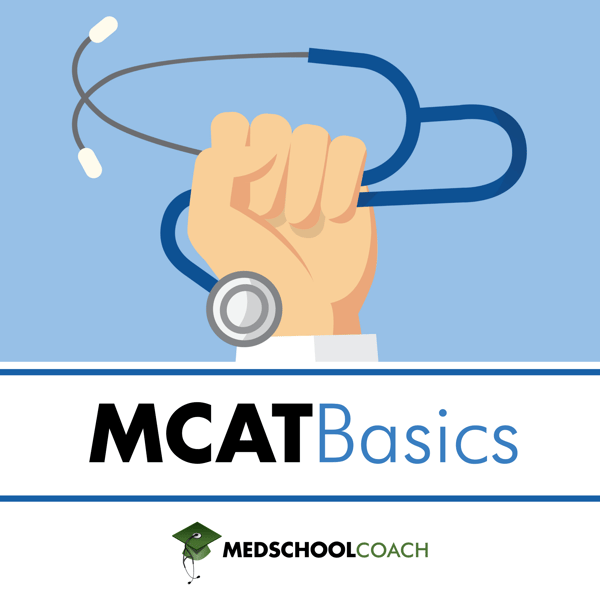Psychosocial Development and Identity
MCAT Basics (from MedSchoolCoach)
MedSchoolCoach
4.6 • 612 Ratings
🗓️ 26 December 2024
⏱️ 40 minutes
🧾️ Download transcript
Summary
The essentials of identity theories and psychosocial development reveal the foundational elements of human behavior and self-perception.
In this episode, Sam Smith discusses the core theories around identity, from Erikson’s stages of psychosocial development and Freud’s psychosexual stages to Piaget’s cognitive framework and Kohlberg’s stages of moral growth. Sam talks about how each theory is represented in MCAT questions, explaining key differences and how they impact our understanding of self-concept, self-esteem, and social roles. Whether it's Cooley’s looking-glass self or Vygotsky’s zone of proximal development, this episode helps make sense of the MCAT’s approach to personality and identity development.
Visit medschoolcoach.com for more help with the MCAT.
Jump into the conversation:
(00:00) Intro
(01:04) Psychosocial development and identity
(01:42) The different theories of identity formation
(01:57) Basic ideas regarding identity and self-concept
(08:29) Erikson's psychosocial development theory
(16:47) Testing strategies and MCAT questions
(17:57) Freud's psychosexual development theory
(24:01) Piaget's stages of cognitive development
(28:15) Kohlberg's theory of moral development
(32:42) Cooley's looking-glass self
(33:21) George Herbert Mead's the I and the Me
(34:34) Vygotsky's social development theory
Transcript
Click on a timestamp to play from that location
| 0:00.0 | Welcome to MCAT Basics, your ultimate guide to the essential topics you need to master for the MCAT, |
| 0:08.0 | brought to you by the physicians at med school coach. |
| 0:10.9 | Every week, Sam Smith breaks down high-yield MCAT topics, ensuring you're primed for success on test day. |
| 0:17.4 | Join Sam as we explore the most crucial subjects outlined by the AAMC, pulled from official |
| 0:22.8 | practice materials and third-party resources. |
| 0:25.6 | Get ready to elevate your MCAT game with topics tailored to maximize your score potential. |
| 0:31.1 | Hello, I'm Sam Smith. |
| 0:33.7 | This podcast is going to cover psychosocial development and identity. |
| 0:37.8 | First what I'm going to do is I'll discuss some of the basic ideas regarding identity and self-concept. |
| 0:43.9 | Just basically define some terms that you're going to want to know. |
| 0:46.8 | And then I'll get into the different theories of identity formation, |
| 0:50.0 | which include but are not limited to Freud's psychosexual development theory, |
| 0:55.1 | Erickson's psychosocial development theory, |
| 0:57.5 | George Herbert Meads, the Me and the Eye, |
| 0:59.9 | poolies looking self-glass, and a few more. |
| 1:02.9 | And during this, I'll mention a few ways the MCAT likes to ask questions |
| 1:06.9 | about these different theories. |
| 1:08.6 | And this material will show up in one out of the four sections. |
| 1:11.2 | That is the psych-soci section. So let's get into it. |
| 1:20.1 | All right, so the first thing I want to go over here is self. So first of all, how do we define |
| 1:25.2 | self? What is the difference between self-concept, self-esteem, self-efficacy, self-image? These all kind of sound like similar terms. And what is this thing called locus of control? Let's answer all these questions. So self-concept is how someone perceives or evaluates themselves. And it belongs under the umbrella term of self-awareness. |
| 1:47.2 | And self-concept contains two different selves. So that's the existential self and the categorical |
... |
Please login to see the full transcript.
Disclaimer: The podcast and artwork embedded on this page are from MedSchoolCoach, and are the property of its owner and not affiliated with or endorsed by Tapesearch.
Generated transcripts are the property of MedSchoolCoach and are distributed freely under the Fair Use doctrine. Transcripts generated by Tapesearch are not guaranteed to be accurate.
Copyright © Tapesearch 2025.

